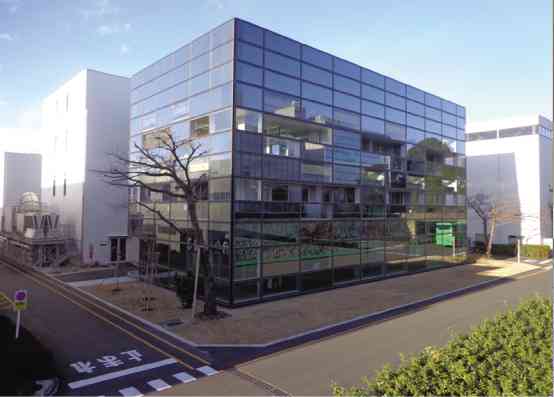7 effective ways for top management to help save energy

TAISEI Zero-energy Building, in Yokohama, Japan, cuts energy use by 75 percent and generates power through organic solar panels aimed at replacing energy from nuclear power plants. photo: Amado de Jesus
Each year, many technical seminars on energy efficiency are conducted with one basic goal—to improve the energy performance of companies. Many companies send their engineers and other technical people to these seminars not only to raise their level of awareness but also to improve their technical expertise on the latest technology in energy efficiency and conservation.
Targeting these engineers and other technical staff as the main audience for energy seminars is a good idea; after all, they will be the frontliners in implementing newly adopted technologies. However, concentrating on this limited audience is like “preaching to the choir.” Most of them are already aware if not willing to implement new ideas to improve energy efficiency in their facilities.
One important and crucial element is missing, though—the involvement of top management. Until top management is involved, we can continue holding one seminar after another and it will not improve our energy situation.
Here are effective measures where top management can help improve the energy efficiency in their facilities.
1 Include energy in the business agenda. For many companies, top management delegates energy-related matters to their engineering department. Rightly so, after all they have more important matters to discuss in the board like company earnings, improving services and products, marketing and so on. And yet energy, being a major operating expense, is not discussed in the board meetings.
Article continues after this advertisementBased on my experience in the Asean Energy Awards as a member of the board of judges for several years now, I noticed that many of the winning entries were submitted by companies where top management was deeply involved in energy matters. They had a firm commitment to improve their energy performance and the first important step is to include energy in the board discussions.
Article continues after this advertisement2 Develop an energy policy. By developing an energy policy, clear objectives can be established with timeframes for completion, whether for short-term or long-term goals. Among other things, the policy may include definite targets like amount of energy reduced monthly or quarterly or annually. For example, instead of reporting only how the company is utilizing energy, top management should challenge the technical department by striving to hit measurable targets like energy savings in terms of kilowatt hours per square meter per year (kWh/sm/yr).
The latest Asean standards for offices, for example, is now 160 kWh/sm/year, which means to be considered energy-efficient, offices must not exceed this index.
Top management must challenge the technical people in their facilities to strive for energy savings.
3 Identify benchmarks. Assuming that your company is already successful in reducing energy and has identified its energy efficiency index (EEI), it is important to see how this compares with the region’s standards. The Asean EEI for occupied air-conditioned area is as follows: office—160 kWh/sm/yr; library—160 kWh/sm/yr; retail/shopping malls—192 kWh/sm/yr; hotel—216 kWh/sm/yr; and hospital—288 kWh/sm/yr.
If the company’s EEI is too high, and therefore not energy-efficient, the more reason it needs to improve and strive to attain the acceptable standards. Is your office building within this standard? Ask your technical staff.
4 Check out the best practices in the region. We have a few examples of energy-efficient buildings in the country but it is still possible to increase their number. This can be done by applying existing strategies that are proven to be cost-effective in reducing energy consumption.
One way is to see how other countries in the region are doing. There are now zero-energy buildings in Singapore, energy-plus buildings in Europe and zero-energy buildings in Japan and so many other cities in the world. It would be a good idea to gather a team and send them to these countries to see how the strategies can be applied in your own company.
5 Appoint an energy manager or team. Again, many of the winning entries in the Asean Energy Awards had energy teams, sometimes also referred to as “Green Team.” This can be made up of one or several persons. It all depends on how large and complex your facilities are. The idea is to delegate the energy plan to a dedicated team who will be responsible for developing and implementing the energy policies and strategies as well as reporting on their status.
6 Constantly raise the bar. With the advent of new technology aimed at reducing energy, whether it is in air-conditioning, lighting, pumps, etc. energy efficiency is all about a constant improvement. If your company made 10-percent energy savings last month, why not aim for 15 percent this month, and higher savings in the next month. It is now possible to reduce energy consumption by 50 or 75 percent or more depending on how the building is designed and maintained.
7 Get a green building certification. Why? A green building certification is the result of a comprehensive building evaluation to assess your facilities. It includes your site, water, indoor environmental quality, materials and energy.
And if given the certification, your building could be a good role model for the business community to emulate.
For comments or inquiries, e-mail [email protected].